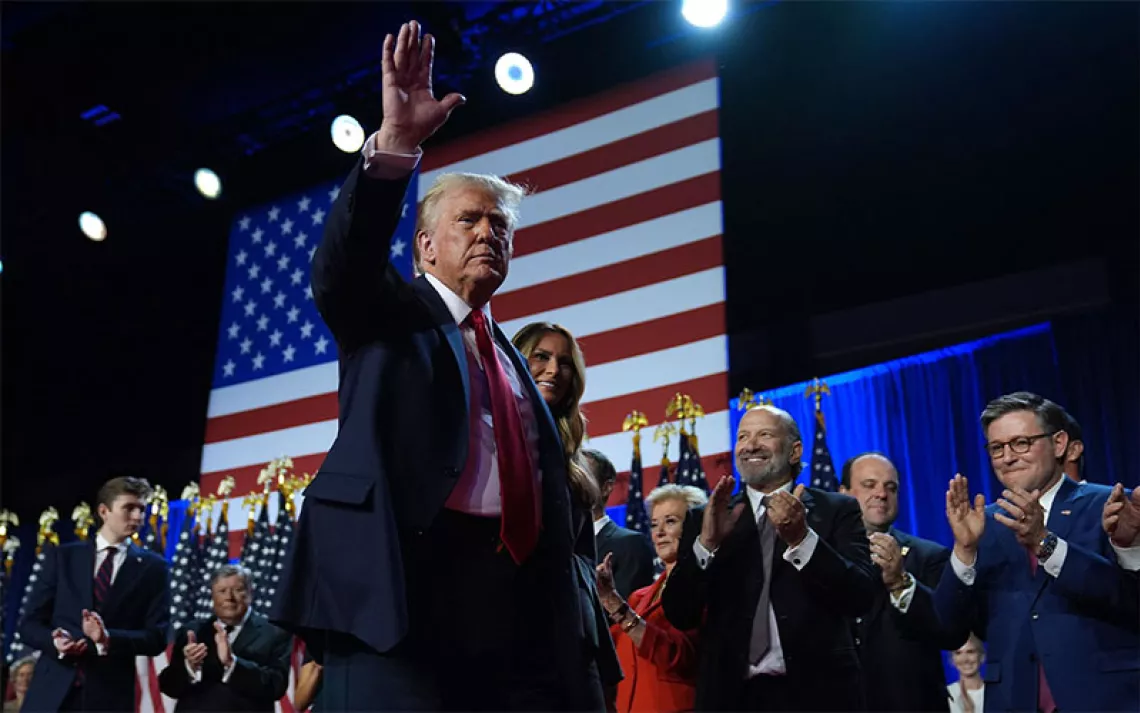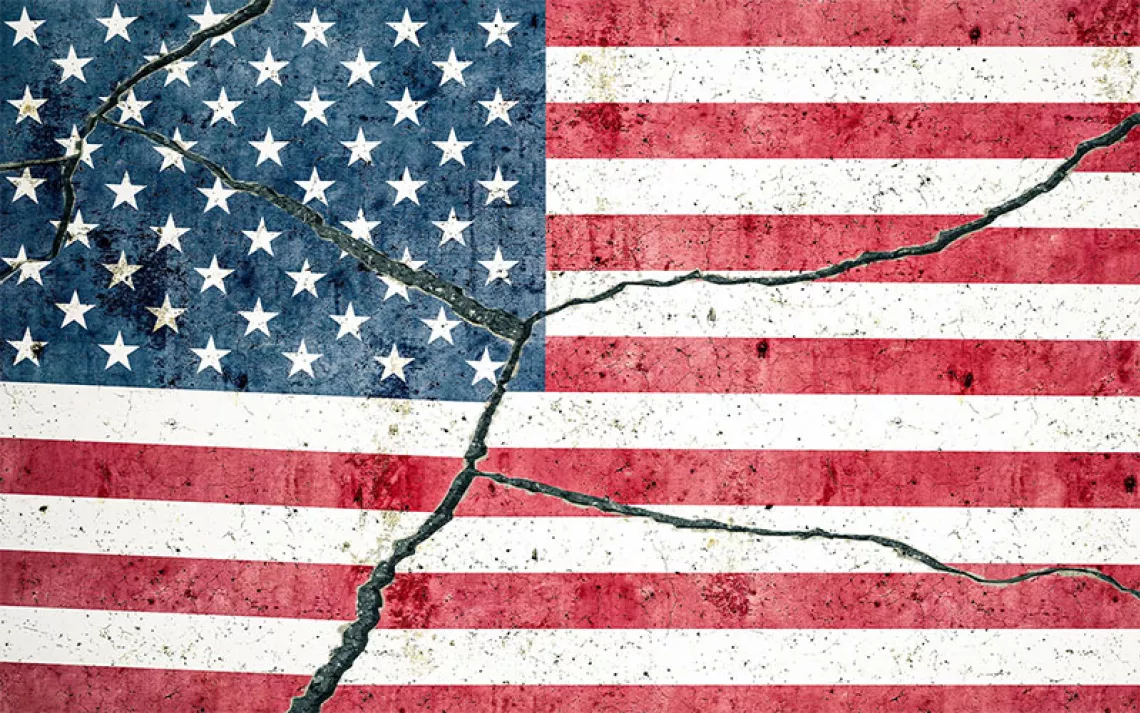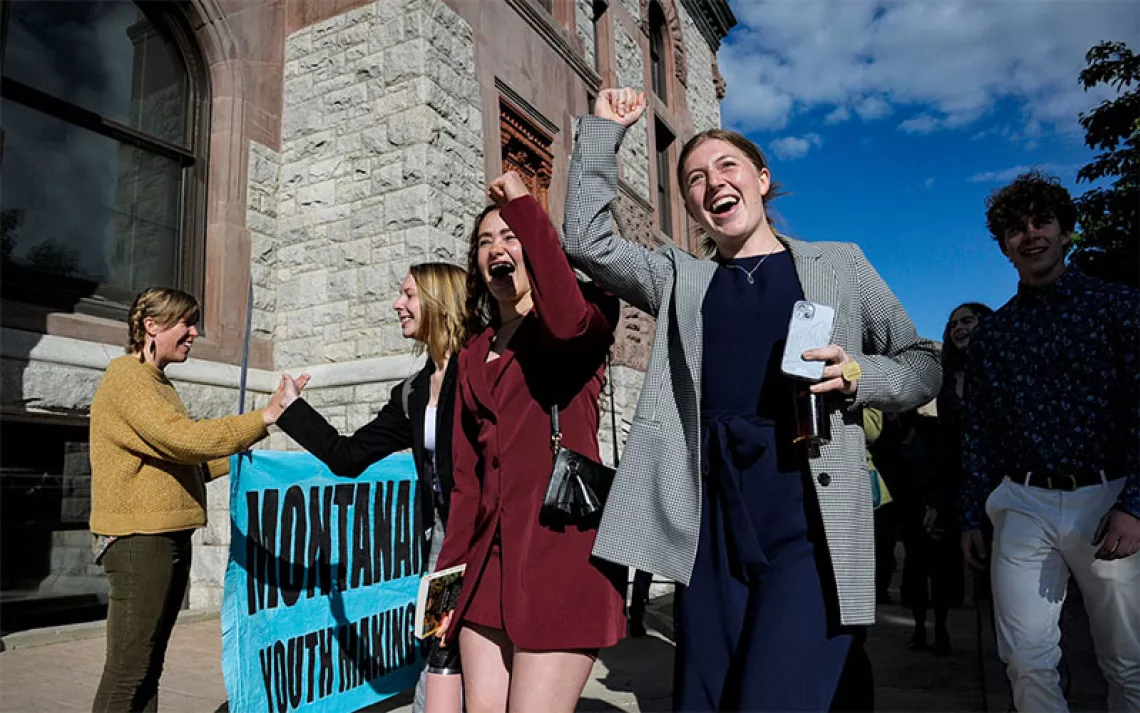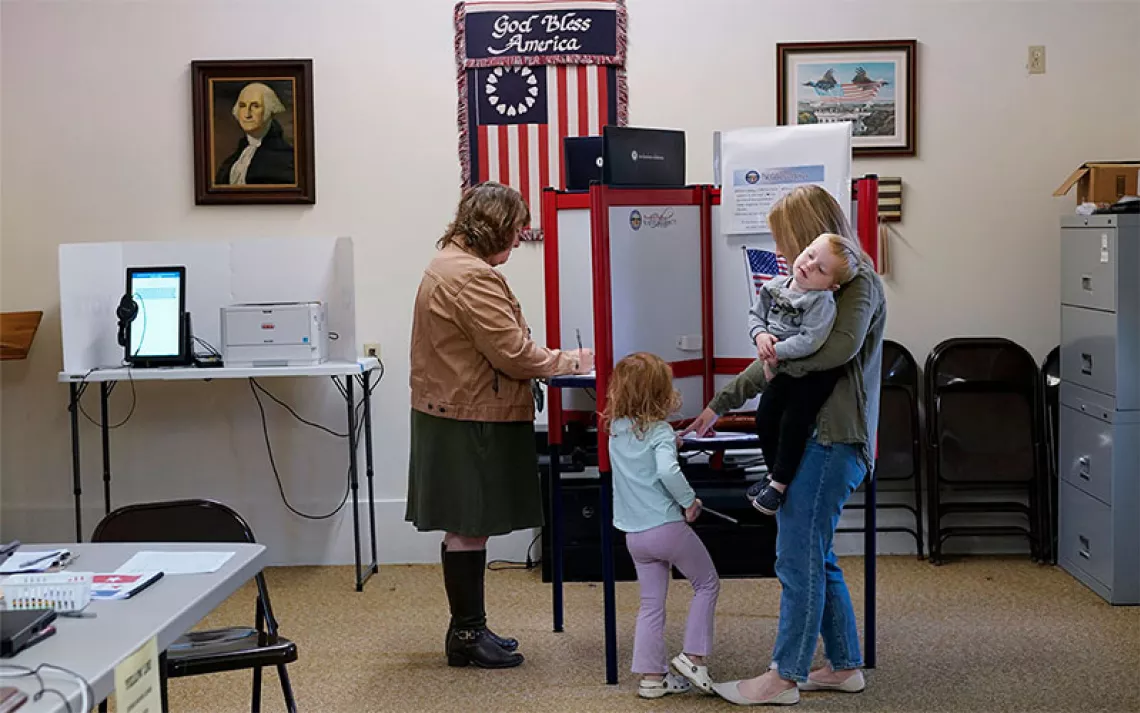Brazil's Likely Next President Poses a Threat to the Planet
Jair Bolsonaro has pledged to open the Amazon to exploitation

Photo by luoman/iStock
This story first appeared at Mongabay.com, the global conservation news service.
With little more than a week to go until a runoff election, far-right presidential candidate Jair Bolsonaro—who has affirmed his intention to withdraw Brazil from the Paris climate agreement—continues to be the rising political star in the world’s eighth-biggest economy and the nation that stands as guardian to a major portion of the Amazon, the globe’s largest remaining rainforest.
Not only did Bolsonaro win 46 percent of the vote in the first electoral round on 7 October, compared to 29 percent for second place PT Party candidate Fernando Haddad, but Bolsonaro’s previously insignificant PSL Party rocketed from a single member elected in 2014 to 52 new federal deputies and four senators. Those ultra-right PSL representatives, combined with the members of the bancada ruralista (the agribusiness and mining lobby in Congress), are likely to give the new president sweeping support in the legislature.
Bolsonaro received the most votes in 17 Brazilian states, including eight within Legal Amazonia, while Haddad won in nine states, eight in the northeast and just one in the Amazon (Pará state).
Analysts say that the odds of Haddad defeating Bolsonaro are remote. Since Brazil’s re-democratization in 1985, no presidential candidate has managed to win a second round after being left behind in the first. Polling projections last week put Bolsonaro ahead this week with 58 percent of the vote, a 16-point lead over Haddad. A new poll is expected out today.
Experts say that Bolsonaro’s surge was largely due to anti-PT Worker’s Party sentiment by a majority of the Brazilian voting public, likely caused by the systemic corruption practiced within the party and revealed in recent years by the extensive Lava Jato (Car Wash) corruption investigation.
Agribusiness the big winner
Bolsonaro, speaking first as a house deputy and then as a presidential candidate, has shown himself to be deeply averse to the environment. He mentions the subject only once in his political platform—just to say that, if he is elected, the nation’s Environmental Ministry will be absorbed into the Ministry of Agriculture.
In a meeting with leaders of the bancada ruralista to formalize their support for the candidate, former army captain Bolsonaro stated, “I consider myself an aggregate to the productive bancada in Brasília, and we want to assist this [agribusiness and mining] sector that has helped Brazil very much [economically]. The problems, to a great extent, will be extinguished merging the ministries of Agriculture and Environment.”
After the 7 October election, officials at two federal environmental departments (IBAMA and ICMBio) spoke out, opposing the dissolving of the Ministry of the Environment (MMA) and denied allegations by Bolsonaro allies that the MMA promotes a “fine [environmental] industry,” profiting from efforts to prevent deforestation and pollution.
Importantly, Bolsonaro has proposed opening the Amazon region for economic exploitation, especially mining. This includes indigenous territories and quilombola lands (communities made up by the descendants of runaway slaves). In a speech last year, Bolsonaro declared, “You can be sure that if I get there [to the presidency], I will not have money for NGOs. If it depends on me, every citizen will have a firearm at home [to defend their property, and] there won’t be one centimeter [or inch] demarcated for indigenous reserves or quilombolas.”
The candidate was even more explicit in a street campaign event: “Let’s make Brazil for the majorities. Minorities have to bow to the majorities. Minorities will fit or just disappear!”
Such rhetoric is almost surely to harden the resistance and resolve by indigenous groups, such as the 15,000-strong Munduruku—known for their fierce warrior traditions—potentially resulting in heightened conflict in the Amazon, a region where violence has already increased under President Michel Temer.
Environmental deregulation
As president, Bolsonaro also plans to “decentralize” and defund federal scientific programs, while transforming the energy-producing sector “into one of the main growth vectors of Brazil.… Small hydroelectric plants, for instance, have faced almost insurmountable barriers to environmental licensing. There are cases that exceed 10-year delays, and we will see that [infrastructure] licensing is evaluated within three months at the most,” according to the PST platform. Whether or not the new president will relaunch Brazil’s now-stalled Amazon mega-dam construction program is unknown.
Political appointments to the Bolsonaro administration are expected to include many military officers who often reject federal regulation as undue interference in progress. General Oswaldo Ferreira, responsible for Bolsonaro’s infrastructure and environmental planning, confirmed that environmental agencies and regulations will likely be completely restructured to eliminate “delays.” He is a probable candidate for Minister of Transportation.
“I was a happy lieutenant [in the past]. When I built roads, there was no Public Ministry nor IBAMA. I was there when the first tree was knocked down [at the opening of the BR-163 highway in the Amazon]…. I knocked down all the trees that lay ahead, with no one to bother. Today, to [be able to] bring down a tree, a handful of people arrive to make a fuss,” said Ferreira.
If Bolsonaro becomes president, Brazilian democracy could also suffer. As noted by Folha de S.Paulo columnist Hélio Schwartsman, “[He] has already made numerous declarations that reveal his disengagement from democracy and human rights. It is not absurd, therefore, to imagine that, once raised to power, he will initiate an escalation of authoritarianism.… As for Haddad and the PT, if the past is worth anything, they have already passed the test of democracy. The party had a destitute president and its great leader was arrested, [but] in no moment did it not abide by the rule [of law].”
The President and Congress
Next president or not, Bolsonaro is already partly responsible for reshaping the new Congress.
Of the 513 federal deputies voted in on 7 October, 52 are from Bolsonaro’s PSL, making that party the second-largest voting bloc in the House of Deputies, just behind the PT, with 56 members. Many of the PSL candidates that were elected are from the army and military police—another potential risk to Brazilian democracy, say critics. Among the most reduced parties was the MDB of exiting President Temer.
The electoral wave that pushed Bolsonaro to the brink of the presidency also helped elect two House deputies who received the most votes in the nation’s history: Bolsonaro’s son Eduardo gained a second term representing São Paulo in the federal House, with 1.8 million votes, and Janaína Paschoal won as state deputy, with 2 million votes. It was Paschoal who filed the petition that initiated the process of impeachment against President Dilma Rousseff in September 2015; she was impeached in 2016 and replaced by Temer.
Re-election attempts among the bancada ruralista in Congress did see significant defeats, probably because many of its candidates had been tainted by corruption scandals. The ruralistas saw only 98 of their 218 federal deputies re-elected—the smallest number since 2002. Among the losers were political heavyweights including Osmar Serraglio, former Minister of Justice in Temer’s government and a harsh critic of indigenous territorial claims, and Valdir Colatto, who owns properties in the Amazon, including some on public lands, and who lost in his bid for a seventh term in the House.
In the Senate, the agribusiness lobby lost 10 senators and re-elected two, and will have a total of 18 members in 2019. Among the chief losers were Romero Jucá, from Roraima state, and Eunício Oliveira, current Senate president and an important ruralist from Ceará state.
New alliances
“The fact that more than half of the bancada ruralista lost their seats does not mean that their power has weakened,” said Sergio Abranches, political scientist and commentator of the radio program Ecopolítica in a Mongabay interview. “They have lost ground due to Brazilians’ rejection of patronage and corruption practices, but we need to observe, after the inauguration, the newly elected [legislators] that identify with the ruralists.”
Journalist Ana Magalhães of the Repórter Brasil news website told Mongabay that “due to Bolsonaro’s alliance with the agribusiness lobby, it is likely that a large number of new PSL deputies will formally join the ruralist caucus, which would help them retain political power.”
As a result, Magalhães expects Bolsonaro to have the backing of more than 50 percent of the new legislature, allowing him to easily pass priority bills fulfilling his agenda, which includes regulatory approval of new pesticides, suspension of indigenous land demarcations guaranteed under the 1988 Brazilian Constitution, and authorization of the possession and use of firearms by rural agribusiness producers.
Ecopolítica’s Abranches believes that Bolsonaro, if elected, will have sufficient congressional support to carry out his threats against the environment and human rights. “From [Fernando] Collor [president from 1990 to 1992] to Dilma [Rousseff, president from 2011 to 2016], all Brazilian presidents were supported during the first eight months of government to approve their priority agenda. The main obstacle will come from the Supreme Court, which has signed jurisprudence on several of those subjects.”
The road ahead
Drowned out by the news of Bolsonaro’s ascendance, and the legislature’s continued shift to the right, there was one bit of good news for conservationists and indigenous activists, which came from Roraima state. There, Joenia Wapichana, a 45-years-old indigenous leader, lawyer, and advocate for the demarcation of the Raposa Serra do Sol Indigenous Reserve, became the first indigenous woman to ever be elected a Brazilian federal deputy. In Congress, Wapichana said she will defend the Statute of Indigenous Peoples, which has been “shelved for several years.”
However, this tiny ray of hope for indigenous Amazonia came in the same week that the United Nations Intergovernmental Panel on Climate Change (IPCC) issued a new report warning world governments that there is little more than a decade likely left to limit some highly destructive impacts of global warming.
If Bolsonaro follows through on his campaign pledges, especially withdrawing Brazil from the Paris climate agreement, his damage to efforts to curb global warming could become his most significant legacy.
A group of concerned scientists has conducted a new study analyzing how much deforestation and carbon releases would be increased by Bolsonaro’s policies and found that the amount “could represent up to 20 percent of the "free" carbon budget remaining to achieve the 1.5° Celsius goal” set by the IPCC to avert disastrous global warming.
Now, the decision of who should be president rests with Brazil’s 147 million voters.
 The Magazine of The Sierra Club
The Magazine of The Sierra Club



